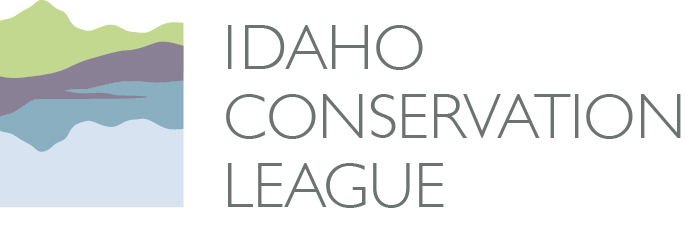For Immediate Release: Monday, March 11, 2024
Contacts:
Jennifer Ekstrom, North Idaho Director, (208) 318-5812
Brad Smith, Conservation Director, (208) 345-6933 x 403
Abby Urbanek, Communications & Marketing Manager, (208) 345-6933 x 214
U.S. and Canada activate International Joint Commission to address mining pollution in the Elk-Kootenai/y Watershed
The decision is an important first step in addressing ongoing mining pollution that has wreaked havoc on the Kootenai River for decades.
SANDPOINT, ID – Today the U.S. and Canadian federal governments announced the activation of the International Joint Commission (IJC) under the Boundary Water Treaty of 1909 to address mining pollution in the Kootenai River that originates from coal mines in British Columbia (B.C.).
Five mountaintop removal coal mines owned by mining company Teck Resources near Fernie, B.C. have polluted the Kootenai River downstream in Idaho with selenium for decades. Those pollution levels have increased significantly in recent years. Selenium is toxic in high concentrations, causing harm to fish, water quality, and people alike. This referral is a critical first step in protecting our fish and water quality in Idaho’s Kootenai River, and the communities that depend on them.
The IJC, which was created as an independent body to resolve transboundary water quality disputes, has not been activated for nearly 40 years on B.C.’s shared watersheds. There are mines in British Columbia polluting waters that flow into Alaska, Washington, Montana, and Idaho. Canada and the province have resisted efforts to convene delegates from Tribes, First Nations, the United States, and Canada under the IJC to address the pollution created by these mines.
This Kootenai River IJC reference comes after years of work by First Nations and Tribes, which have been tireless advocates for water quality and fisheries. Moving forward, the IJC’s work to address the pollution in Idaho and Montana will include the creation of a governance board. This board will include representation from the Kootenai Tribe of Idaho as well as the state of Idaho. The Idaho Conservation (ICL) will continue working to ensure our state is a strong advocate for our water quality and all the life that depends on it.
“We are very pleased that the Kootenai Tribe of Idaho, the Confederated Salish and Kootenai Tribes, and the entire Ktunaxa Nation finally have their rightful seat at the table after many years of calling out the injustice of pollution impacting their waters and fisheries,” said Brad Smith, Idaho Conservation League’s conservation director. “Teck must be held accountable for the harm that their operations are causing to the river, the fish, and communities that depend on them.”
The timing of the IJC announcement comes at a critical moment, as Teck’s mining complex in the Elk Valley, B.C. is slated for sale to Glencore, an international mining corporation with an alarming track record. Glencore has previously faced criticism over human rights issues and other problems, including bribery and market manipulation charges for which the company pleaded guilty to and was penalized for. Furthermore, Glencore’s Columbia Falls aluminum smelter near the gateway to Glacier National Park in Montana was designated a Superfund site, highlighting the corporation’s irresponsible environmental practices in a nearby community. Considering the uncertainty about which corporation will be responsible for the ongoing cleanup of the downriver pollution from the Elk Valley coal mines, the referral to the IJC is welcome news to ICL and others who care about clean water.
“It’s great to finally have a commitment from both the U.S. and Canada to work transparently to address the impacts of the coal mine pollution before it’s too late,” said Jennifer Ekstrom, Idaho Conservation League’s north Idaho director. “Just this week, the EPA announced a Superfund recommendation for the Columbia River downstream from the Teck Cominco smelter in Trail, B.C.—further showing that Teck cannot be trusted to protect downstream communities without strong oversight. Today’s IJC announcement for the Elk/Kootenai gives us a glimmer of hope that such an outcome can be avoided here, and that U.S. taxpayers won’t have to shoulder the burden of the cleanup as they are expected to do in the Columbia River situation.”
“There is still much work to be done before the Kootenai River pollution is cleaned up, but we finally have an international venue where solutions can be crafted,” concluded Smith.
###
